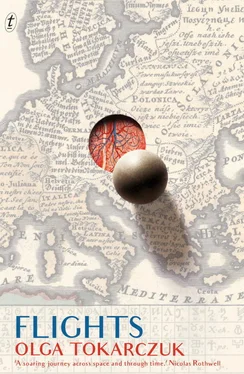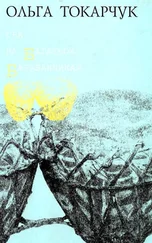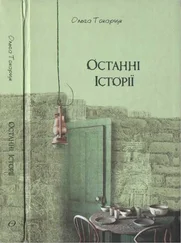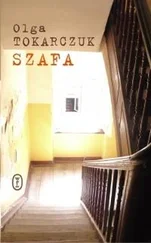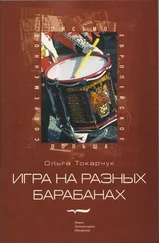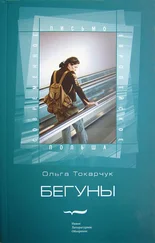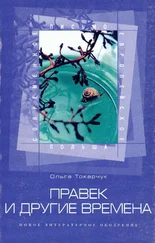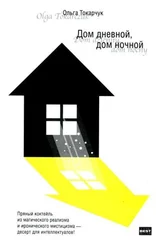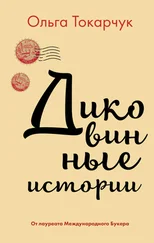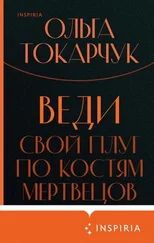Details, the weight of details: he used to not take them seriously. Now he’s sure that when he arranges them in a tightly made chain – cause plus effect – everything will be explained. He should sit quietly in his office, lay out a piece of paper, best if it’s large-format, the largest he can find, he has some like that from the paper books are wrapped in, and plot it all out in points. After all, that’s the truth.
So, okay. He slices through the plastic tape on a package of books and takes out the stack of them without even looking at them. That’s one of those bestsellers, who cares. He picks up the sheet of grey paper and straightens it out on the desk. This extended grey space, slightly creased, confuses him. With a black marker he writes: border. They fought there. But maybe he should go back to before they left? No, he’ll start there, at the border. He must have held out his passport through the car window. That was between Slovenia and Croatia. Then he recalls them going down the asphalt highway through empty villages. Stone homes without roofs, bearing traces of fire or bombs. Clear signs of war. Overgrown fields, dry, barren land lacking care. Its owners in exile. Dead paths. Gritted teeth. Nothing, nothing wrong, they’re in purgatory. They’re in the car and looking out in silence at those haunting landscapes. But her he can’t remember, she was sitting too close to him, next to him. He doesn’t remember if they stopped anywhere or not. Yes, they got petrol at some little station. He thinks they bought some ice cream. And the weather, that it was stifling. Milk in the sky.
Kunicki has a good job. At work he’s a free man. He works as a sales representative for a big Warsaw publisher – representative, meaning he peddles books. He has several spots in town he has to stop by every so often to tout his wares; he always brings them the latest stuff and makes them special offers.
He drives up to a little shop on the outskirts of town and gets the order he’s fulfiling out of the trunk of his car. The shop is called Book and School Supplies Shop, it’s too small to give itself such airs as a specific name, and anyway, most of what it sells are simply notebooks and textbooks.
The order fits into a plastic box: guidebooks, two copies of the sixth volume of the encyclopaedia, the memoirs of a famous actor, and the latest bestseller by the unrevealing title of Constellations – a whopping three copies of this. Kunicki promises himself he’s going to read it. They serve him coffee and a slice of cake. They like him. Washing down mouthfuls of cake with the coffee, he shows them the new catalogue. This sells well, he says, and this right here gets ordered all the time. Such is Kunicki’s job. As he’s leaving he purchases a calendar that’s on clearance.
In the evening in his tiny office he fills in the publisher’s corporate forms with the orders he’s received; he sends the forms by email. He’ll receive the books in the morning.
He takes deep, relieved breaths, inhaling the smoke from his cigarette: the work day is done. He’s been waiting for this moment since morning so he can look through the pictures in peace. He hooks up the camera to the computer.
There are 64 of them. He doesn’t delete any. They come up automatically, for 10-12 seconds each. The pictures are boring. Their one merit is that they fix instants that would otherwise have vanished completely. But would it be worth it to copy them? Even so, Kunicki copies them to a CD, turns off the computer and sets off for home.
All his actions he performs automatically: he turns the key in the ignition, turns off the alarm, fastens his seatbelt, flips on the radio, puts the car in first gear. It immediately rolls along from the car park into the busy street, in second gear. They’re doing the weather on the radio. They’re saying it’s going to rain. And sure enough it starts to rain, as if all the drops of rain had just been waiting to be conjured up by the radio; the windshield wipers come on.
And suddenly something changes. It’s not the weather, not the rain, not the view from the car, but somehow, in a single moment, he sees everything differently. It’s as if he’s taken off his sunglasses, or as if the windshield wipers have scraped off more than their usual skimming of urban grunge. He feels hot and steps on the gas in spite of himself. People are honking at him. He pulls himself together and tries to catch up with the black Volkswagen. His hands start to sweat. He would happily pull over, but there’s nowhere to pull over to, he has to keep going.
He sees with terrible clarity that the road, so familiar to him, is suffused entirely with lurid signs. These signs are messages for him alone. The one-legged circles, the yellow triangles, the blue squares, the green and white markers, the arrows, the indicators. The lights. The lines painted on the asphalt, the motorway markers, warnings, reminders. The smile on the billboard, not immaterial either. He saw them this morning, but he didn’t understand them then, this morning he could ignore them, but now, now there is no way for him to do that. Now they are all communicating with him, quietly, categorically, there are so many more of them, in fact there is no space they do not inhabit. The names of shops, the ads, the post office symbol, the pharmacies, the bank, the lifted STOP paddle of the nursery school teacher overseeing the children crossing the road, sign goes through sign, across sign, sign indicating another sign – a little further on, a sign taken up by another sign, passed further along, a conspiracy of signs, a network of signs, an understanding between signs behind his back. Nothing is innocent, and nothing is insignificant, it’s all a big endless puzzle.
In a panic he looks for a place to park: he has to shut his eyes or he’ll go crazy. What is wrong with him? He starts to shake. Relieved he finds the bus stop and pulls over. He begins to be able to control himself. It occurs to him that he might have had a stroke. He’s afraid to look around. Maybe he has discovered a way of viewing things, or another Point of View, capitalized, all of it capitalized.
His breathing returns after a little while to normal, although his hands are still shaking. He lights a cigarette, that’s it, let it pollute his lungs with a little nicotine, stupefy him with smoke, evict the demons. But he knows now that he can’t go any further, that he wouldn’t be able to handle this new knowledge that now overwhelms him. He gasps for breath with his head on the steering wheel.
He positions the car on the pavement, he’s sure they’ll give him a ticket, and carefully he walks away. The asphalt surface of the road seems viscous now.
‘Mr Untouchable,’ she says.
Provocatively, Kunicki doesn’t respond. She slams the cabinet door after pulling out a packet of tea, waiting out the duration she’s given him to react.
‘What’s going on with you?’ she asks. Aggressively now. Kunicki knows that if he doesn’t answer now she’ll launch a full-blown attack, so he says calmly:
‘Nothing. What would be going on?’
She snorts and says in a monotone:
‘You don’t say anything, you don’t let me touch you, you scoot over to the very edge of the bed, you’re not sleeping, you’re not watching TV, you come home late, smelling of alcohol…’
Kunicki contemplates how he should behave. He knows that whatever he does will be wrong. So he stops. He stiffens in the chair, looks at the table. He’s as uncomfortable as if he’d swallowed something that won’t go down his throat. He feels a menacing movement of air in the kitchen. He tries one last time:
‘We have to call things by their name…’ he starts, but she interrupts him.
‘I mean, yeah, if only we knew what their name was.’
Читать дальше
